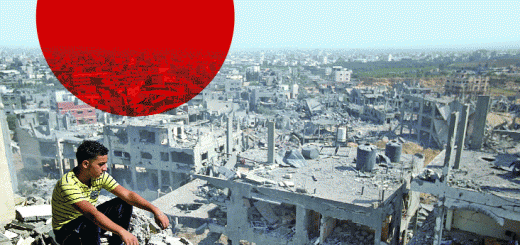Muslims pitted against Muslims in -Abu Tahir Mustakim and Abu Muaj
World media is in surprise. In the Russia-Ukraine war, soldiers of both sides chanted the same sound-‘Allahu Akbar’. Muslim armies are fighting on both sides — Ukraine and Russia. Chechen Muslims have come to the battlefield on behalf of Russia and the Muslims of Ukraine are fighting to stop the aggression of Russia. Muslim gravediggers in Russia and Ukraine are passing hectic time in Russia and Ukraine as soldiers of the same faith (Islam) of the warring countries have been finding themselves pitted against each other. They are fratricidal, killing fellow Muslims in a war which is not solely theirs. It is rather another ‘white man’s war’ like World War I. During the WWI, British, French and Germany used Muslim conscripts. The French generals deployed Moroccan conscripts as cannon fodder. Turkish Muslims have found themselves pitted against Moroccans. The Russia-Ukraine war brought back the memories of western warfare policies. History repeats itself but Islam didn’t come to the region with this purpose.
In 632, Prophet Muhammad (Peace Be Upon Him) went to rest forever after a successful mission of purifying the individual, society, state, and humanity. He entrusted associates and followers with spreading his message around the world. And so in 636, they won unequal but wonderful battles against the Byzantine Empire at Yarmouk and the Persian Empire at Qadisiya. According to historians, these were turning points in the history of the modern world. After defeating the then two superpowers, Prophet’s (PBUH) followers fanned out in different parts of the world as ‘brown man’s burden’. The Arabs taught, enlightened and made the Europeans and Americans civilized.
By 640, messengers of Islam had arrived in Armenia. In 642, the Muslim army under the leadership of Abdur Rahman Ibn Rabiah (RA) launched its first operation in the Caucasus. His expedition reached as far as Darvent, a Russian city on the Caspian coast. Sharabraz was the then Persian governor of the city. He offered to hand over all the forts to the Muslims and help against the rebels in the Caucasus. In return, Sharbaraz and his associates applied for a waiver of jizya tax. Hazrat Umar (RA) granted the request.
Medina was then ruled by the second caliph, Hazrat Umar (RA). In Azerbaijan, Utbah bin Farkad was his governor. Utbah sent the famous and delicious food `khabis’ for the beloved caliph. Upon getting the yummy food, Hazrat Umar ibn Khattab (RA) came to know about the taste and fame of that food but sent this food back to the sender. Umar (RA) wrote a letter to governor Utbah: Why did you send me food that you can’t give to everyone?
By 650, Islam was established in its glory in the Trans Caucasian region. Since then, the march of the religion has been making a mark. But the number of devout Muslims started to dwindle several years into their conversion. Tsars emerged. Despite continued self-defence efforts, by 1850, Muslim-ruled areas fell to Russian Tsarist control. In 1917 Russia took on a different look through the Bolshevik revolution when the world was sailing through World War I. In WWI, some Tartars fought against Germans while some fought in favour of Russia. But Russian hegemony termed Tartars as traitors in wholesale banished them from their motherland. In this way, last Mongols in Europe were punished. Despite all these state-sponsored terrorism and animosity to religion, Islam grew somehow in Soviet Russia. Many joined Russian bloc including six Central Asian Muslim countries. Many Arab countries sided with anti-American bloc. In 1989, Moscow celebrated the millennium of Russia-Muslim relations. Then the collapse of the Soviet Union and the disintegration of Russia are things of the recent past.
On February 21, 2022, three days before Russian forces began the invasion of Ukraine; Russian President Vladimir Putin gave an angry televised speech. In it, he expressed familiar grievances about the eastward expansion of NATO, alleged Ukrainian aggression, and the presence of Western missiles on Russia’s border. But most of his tirade was devoted to something else. “Ukraine is not just a neighboring country for us,” Putin said. “It is an inalienable part of our own history, culture, and spiritual space.”
According to Putin, modern Ukraine was a creation of Bolshevik leader Vladimir Lenin that included “historically Russian land.” Putin was rehashing a 5,000-word treatise he had published over the summer with the ominous title “On the Historical Unity of Russians and Ukrainians.” In it, he claimed that Russians and Ukrainians were “one people,” and that the West was busy turning Ukraine into an “anti-Russia.” With its rich agricultural lands and heavy industry, Ukraine was the jewel in the crown of the Russian Empire as was Bengal for vast Indian subcontinent for hundreds of years. Strategically, control of Ukraine allowed Russia to project power across the Black Sea and deep into Europe.
For Putin, the entire post–Cold War era has been a period of Russia’s humiliation at the hands of a hostile and jeering West. His all-out war on Ukraine is as much meant to punish Ukrainians for choosing their own destiny as it is to avenge perceived indignities by former rivals. Putin uses the vocabulary of past US conflicts, justifying his actions in Ukraine with unfounded accusations of “genocide” of ethnic Russians or Ukraine’s development of “weapons of mass destruction.” Putin is exacting revenge for the time when Russia had to watch helplessly while the United States went to war despite the objections of the Kremlin.
Most Ukrainians viewed Russia positively and were largely ambivalent about NATO membership. But after Putin occupied Muslim-dominated Crimea and instigated a bloody insurgency in eastern Ukraine, Ukrainians naturally began to view Russia as an enemy and to see NATO membership as a sensible way forward. But Vladimir Putin’s obsession with the past and his historical legacy are consuming thousands of lives, wreaking destruction on Ukraine, and threatening Russia’s own future.
In Chechnya, Russia followed the policy of ‘divide and rule’ which theory was implemented by colonialist Britain in India and Cyprus where a sense of animosity between the communities still prevails. Till date, the policy of colonialists yielding for Russia could crash the sense of politico-religious independence in Chechnya. The country almost annihilated the whole Tartar nation and within one hundred years of ethnic cleansing, Crimea was annexed in 2014 by Russia. The few surviving Tartars — aggrieved and melancholic — started to return to their homeland only to discover their homes are occupied and on top of all, their motherland is once again annexed by Russia.
Muslims have been serving in the Russian military since the tsarist era, yet their presence has been especially visible — and controversial — in this war. Washington Post reported citing a local official, among the first Russian casualties whose name became public was a Muslim from Dagestan, Nurmagomed Gadzhimagomedov. One third of those who have been held come captives are Muslims, according to analysis by Radio Free Europe/Radio Liberty. Chechen strongman and Putin ally Ramzan Kadyrov has dispatched a unit of loyalists to Ukraine and Ukrainians have accused Russia of attempting to assassinate President Volodymyr Zelensky.
In Ukraine, Muslims — though one percent of the total population— are fighting to safeguard Ukraine significantly. Along with them, expatriate Chechens might have joined them to fight out Russians.
Meanwhile, the “jihad” declared in Chechnya does not appear to have much popular support. One influential critic, Abdullah Kostekskii, a Salafist from Dagestan now in exile in Turkey, said it is unlawful for Muslims to take part in the Russia-Ukraine war. His Russian-language YouTube video on the subject has received more than 450,000 views in just over a week, according to the Washington Post.
Lame excuses of Putin over the campaign remind the world of the history of the 32-lakh square kilometer subcontinent which was established by Mughal emperors. In 1757, the English merchants took power by defeating Nawab Sirajuddolah conspiratorially. Following the Sepoy Mutiny of 1857, the British subjugated the entire subcontinent under Mughal rule. After two hundred years of rule, they were forced to leave by forming two states, India and Pakistan. Bangladesh was created from Pakistan in its continuity.
Now if Pakistan claims Bangladesh as its own from the remnants of the former relationship; India declares Bangladesh as its part citing geographical proximity, or if the United Kingdom wants to regain control of their former colonies- Could that be logical?
Yes, it can be, if that’s the case with the greedy leopard and the innocent sheep in the fables of Aesop. However, it is very difficult to rationalize the Russian campaign in Ukraine as most of the Ukrainians were not aggrieved by the local rulers’ complicity of enforced disappearance, squeezing of democratic space for opposition or dissent voice, ballot box stuffing in midnight. Russian aggression could have been rationalized if a large number of Ukrainians suppressed back at home would have sought asylum in Russia and urged leaders in Moscow to take action like those of Count Julian of Ceuta who invited Tariq Ibn Ziyad to get justice from Spanish King Roderick in 711.











Recent Comments